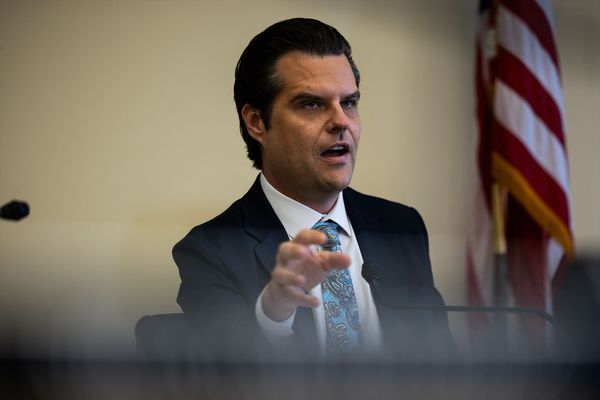
Twitter users can no longer link out to several other social media platforms as part of a new ban on promoting its competitors, just days after the platform nuked the profiles of nine journalists critical of Elon Musk.
In a post detailing the changes, Twitter said it would remove accounts that appear to have been created for the sole purpose of promoting other platforms, as well as tweets that contain direct links to its competitors. At this stage, the ban is limited to Facebook, Instagram, Mastodon, Truth Social, Tribal, Post and Nostr.
The changes mean that users will be targeted by Twitter for adding links to their bio and tweets or mentioning their user names for other platforms in any way across the site. Users will, however, still be able to cross-post content from prohibited platforms to Twitter, and all references to Telegram, TikTok, YouTube, Weibo and OnlyFans will be safe.
Users from across the platform have already reported having tweets removed, and others said they were faced with error messages when trying to tweet out links to banned platforms. Some more prominent users, such Twitter founder and former CEO Jack Dorsey, continue to use the platform at odds with the new policy and remain unaffected.
At time of writing, Dorsey’s bio still includes his Nostr key, and an account verification tweet the former Twitter boss sent out on Saturday, which includes his Nostr key and a link to Nostr, remains live.
The move is as the latest in a series of erratic content moderation decisions made by Musk since he bought the company for US$44 billion in October.
Shortly after announcing the latest ban, Musk tweeted out a poll asking his 122 million followers whether he should step down as head of Twitter: “I will abide by the results of this poll.”
Later on Monday, the policy page was abruptly removed from Twitter’s Help Center, along with the tweets sent by the company announcing the new ban, which were also deleted without explanation.
In the week leading up to the change, Twitter had arbitrarily suspended the accounts of several prominent reporters from major news organisations including The New York Times, The Washington Post and CNN, who had spent the past two months covering Musk’s takeover of Twitter.
Musk, a devout free speech absolutist, said the journalists were banned last Thursday for referring to accounts that track the planes of billionaires and other high-profile individuals, including his own. The account dedicated to tracking the movements of Musk’s plane, @elonjet, published regular automated updates on the billionaire’s jet’s whereabouts, based on publicly available information.
Musk on Twitter said that posting someone’s location in “real time” violates the platform’s “doxxing policy”, which according to the Internet Archive didn’t include anything related to live locations in the days leading up to the blanket suspensions of 25 accounts last week. Musk said delayed location updates could continue to be posted to the platform.
The move attracted a swarm of criticism, including condemnation from politicians from across Europe. Jean-Noël Barrot, France’s digital affairs minister, said in a tweet that he was “dismayed”, and European Commission Vice-President Věra Jourová said she would leave the platform in protest.
She also warned Musk that the move could be in breach of Europe’s new Digital Services Act, which came into force last month and “requires respect of media freedom”. If breached, she warned, there could be “sanctions, soon”.
By Saturday, the accounts were mostly restored at the whims of a poll conducted by Musk on Twitter, which asked his followers whether or not the journalists should be allowed back. For at least two of the accounts, according to a report from The New York Times, the reactivation would come with caveats: that they deleted tweets “violating” Twitter’s rules “against posting private information”.
In the two months since his takeover of Twitter, Musk has taken a scattershot approach to who and what is allowed on the platform. He started his tenure with promises of a content moderation council, in what seemed to be part of a bid to keep advertising revenue flowing, but then dispensed with the idea.
Instead he has committed to a ruthless wave of cost-cutting that saw hundreds of Twitter employees either quit or fired. Many of them were responsible for content moderation, in part to ensure that paid advertising doesn’t appear next to offensive tweets.
He then went on to controversially reinstate the account of former US president Donald Trump, who has yet to tweet, along with a broad swathe of white nationalists, neo-Nazis and account owners who had previously violated Twitter’s terms of service for hate speech or inciting violence.
The strategy so far has seen Musk branded a “far-right activist”, and more than half of Twitter’s top 100 advertisers left. But it would seem neither have skewed his vision.
Early on Monday, Musk was seen watching the World Cup final between Argentina and France from the stands at the Lusail Stadium in Qatar, alongside Trump’s son-in-law Jared Kushner, who just six months after leaving the White House secured a US$2 billion investment from a Saudi sovereign wealth fund led by the Saudi crown prince.
And just last month, Saudi Prince Alwaleed bin Talal moved about US$1.9 billion worth of Twitter shares through Kingdom Holding to become Twitter’s second largest investor.







